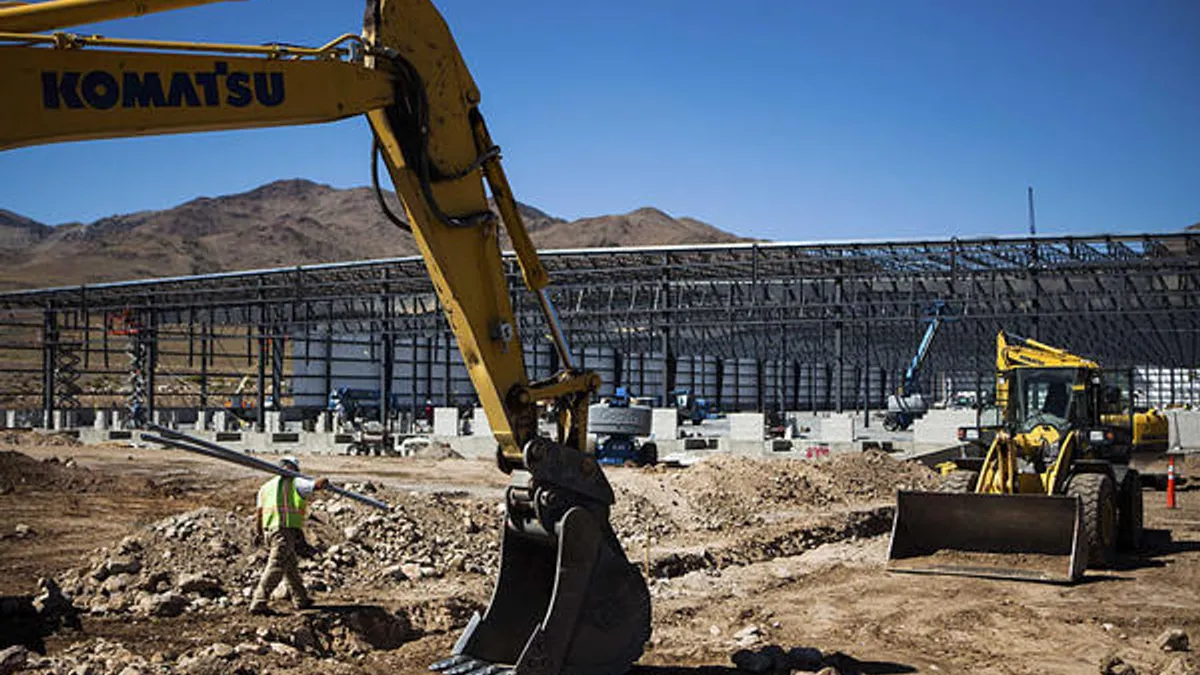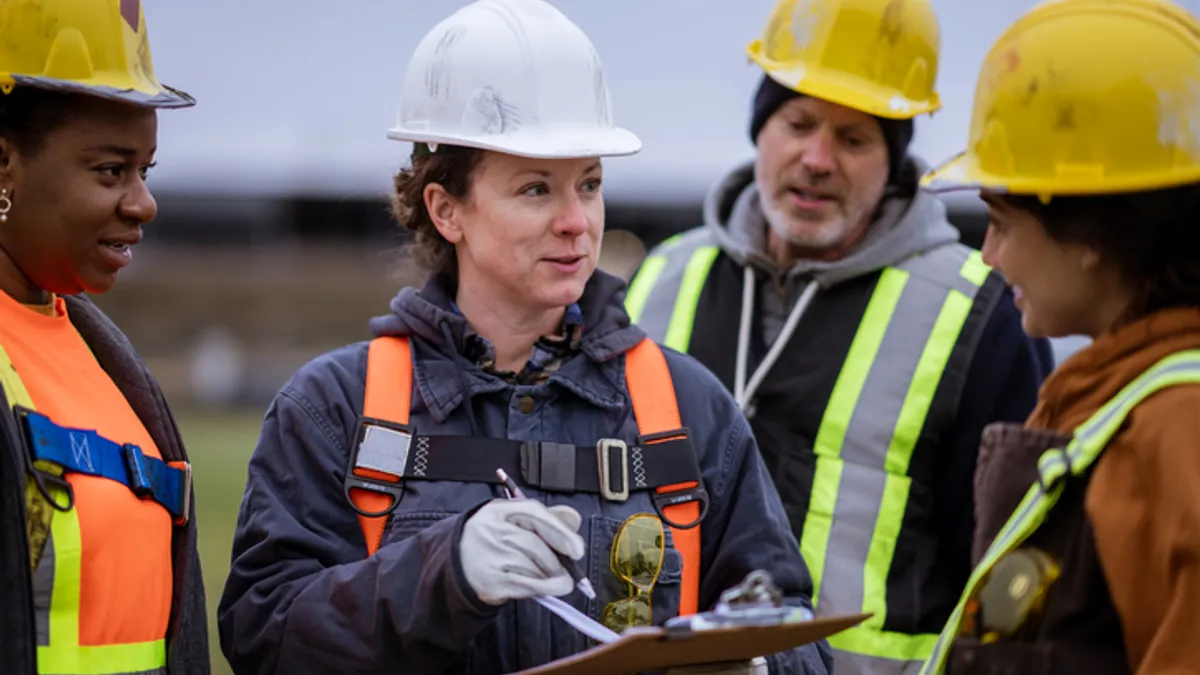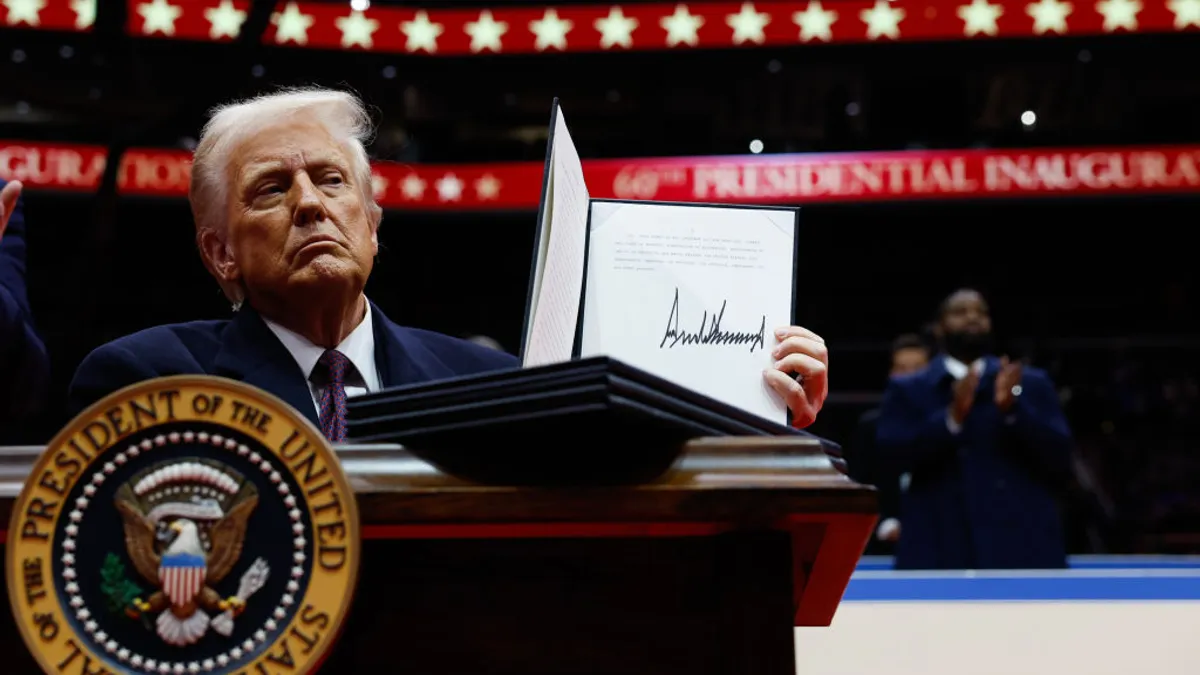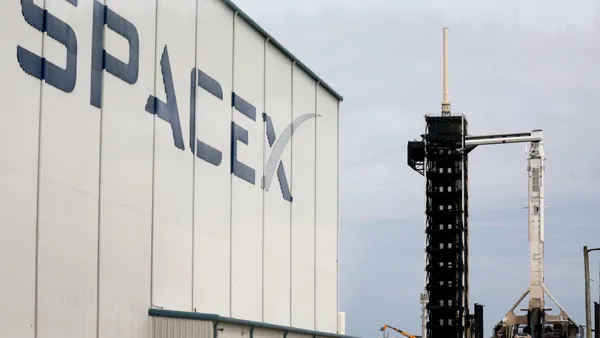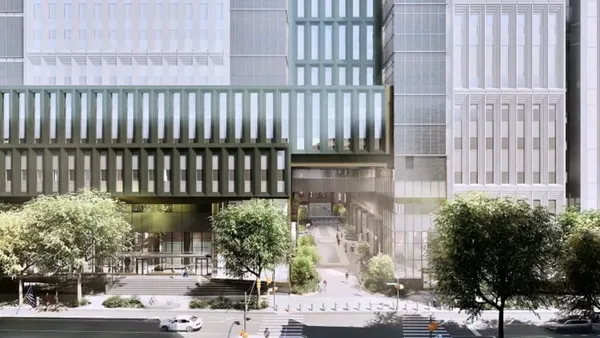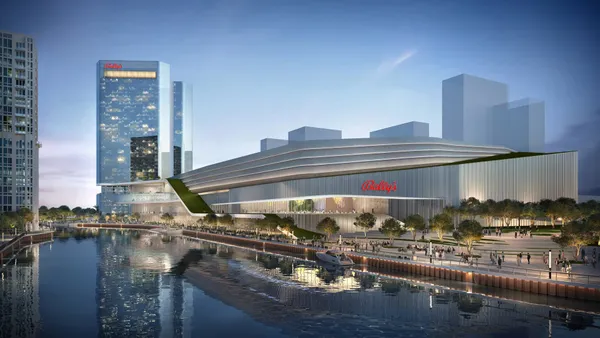Dive Brief:
- It’s been a little more than one year since the announcement of the construction of Tesla's $5 billion battery gigafactory in Reno, NV, along with its unparalleled $1.4 billion package of tax incentives, and most state legislators agree that the factory has already sparked an economic upswing in the region, the Reno-Gazette-Journal reported. In an unusual move by the state, Tesla’s tax incentives were contingent on measurable economic improvement, and its first formal audit is now due.
- Construction of the gigafactory is ahead of schedule, and the county’s business licenses are up 41% — with the "vast majority" in the trades and construction, according to the Gazette-Journal.
- In addition, although Tesla asked for, and received, an extension on its job creation and value of investment audit reports, state Sen. Ben Kieckhefer said that Tesla is on track with its promises. The Governor’s Office of Economic Development reports indicate the construction workforce on the gigafactory is comprised of 73% Nevadans — well above its commitment of 50% — with a total third-quarter payroll of $2.9 million and a total investment value so far of $238 million.
Dive Insight:
Once the gigafactory is up and running, it is expected to more than double the world’s production of lithium-ion batteries, which will be used to power the Tesla Model S car and the Powerwall battery packs for home solar storage.
Even though preliminary reports show that Tesla is meeting its obligations under the tax incentives agreement, the company will not be able to collect the $10 million of tax credits available until the audit is complete.
Another benefit from Tesla’s entry into the area, according to GOED Director Steve Hill, is that recruiting businesses to the state seems to be a thing of the past. Hill said that companies who have heard about Tesla’s foray into Nevada are now contacting him.
"We met recently with a really large company — a very household name — looking at an opportunity in Northern Nevada," Hill told the Gazette-Journal. "They said if Tesla hadn’t picked Nevada they wouldn’t even have considered it. That opened their eyes."
The real economic impact, Hill said, will come when the factory is finished and starts manufacturing.
"Given that their schedule has been accelerated, I would say we are ahead of where we expected to be," Hill said. "But we are still early in the process. Most of the real economic impact will be driven by the employment and that is still in the future."
Tesla also recently announced its gigafactory will be a net-zero-energy facility, meaning it will produce as much energy as it uses.


